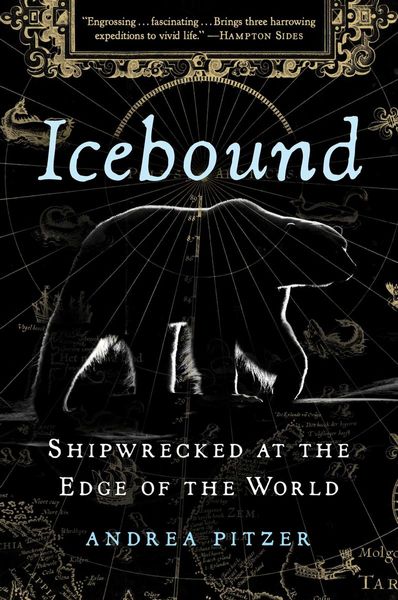
Icebound Shipwrecked at the Edge of the World
In the bestselling tradition of Hampton Sides’s In the Kingdom of Ice, a riveting and cinematic tale of Dutch polar explorer William Barents and his three harrowing Arctic expeditions—the last of which resulted in a relentlessly challenging year-long fight for survival. The human story has always been one of perseverance—often against remarkable odds. The most astonishing survival tale of all might be that of 16th-century Dutch explorer William Barents and his crew of sixteen, who ventured farther north than any Europeans before and, on their third polar exploration, lost their ship off the frozen coast of Nova Zembla to unforgiving ice. The men would spend the next year fighting off ravenous polar bears, gnawing hunger, and endless winter. In Icebound, Andrea Pitzer masterfully combines a gripping tale of survival with a sweeping history of the great Age of Exploration—a time of hope, adventure, and seemingly unlimited geographic frontiers. At the story’s center is William Barents, one of the 16th century’s greatest navigators whose larger-than-life ambitions and obsessive quest to chart a path through the deepest, most remote regions of the Arctic ended in both tragedy and glory. Journalist Pitzer did extensive research, learning how to use four-hundred-year-old navigation equipment, setting out on three Arctic expeditions to retrace Barents’s steps, and visiting replicas of Barents’s ship and cabin. “A visceral, thrilling account full of tantalizing surprises” (Andrea Barrett, author of The Voyage of the Narwhal ), Pitzer’s reenactment of Barents’s ill-fated journey shows us how the human body can function at twenty degrees below, the history of mutiny, the art of celestial navigation, and the intricacies of building shelters. But above all, it gives us a first-hand glimpse into the true nature of human courage.
Reviews
Jackson Weaver@jacksonweaver
Jeremy Anderberg@jeremyanderberg
Rob@robcesq
Maurice FitzGerald@soraxtm